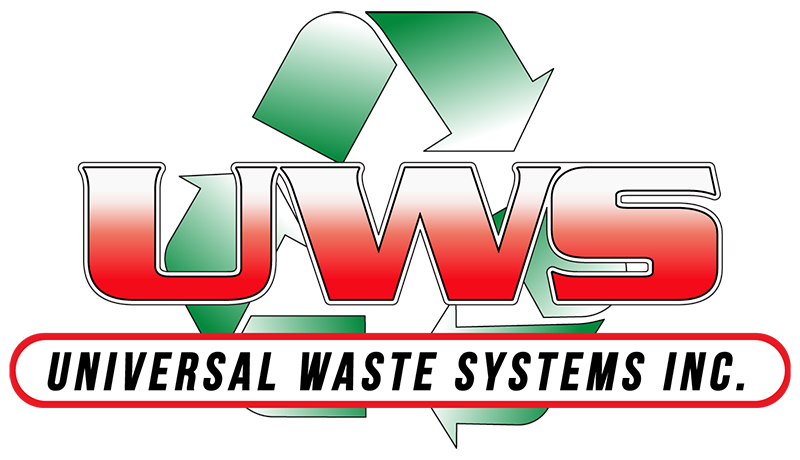Blog
Essential Guide to Effective Waste Management: Strategies for Optimizing Trash Pickup Efficiency
Waste Management Trash Pickup is a critical component in maintaining urban hygiene and environmental sustainability. According to the Environmental Protection Agency, approximately 292.4 million tons of municipal solid waste were generated in the United States in 2018, equating to about 4.9 pounds per person per day. Effective waste management practices are essential to reduce landfill contributions and enhance recycling efforts. Recent studies have shown that optimizing trash pickup routes can lead to a reduction in greenhouse gas emissions by as much as 15%, while also cutting operational costs by up to 30%. As cities continue to grow and face challenges related to waste disposal, timely and efficient waste management strategies are imperative. This guide will delve into actionable techniques to improve trash pickup efficiency, ultimately fostering cleaner, more sustainable urban environments.

Understanding Waste Management: Key Concepts for Beginners
Understanding waste management is crucial for creating a sustainable environment. At its core, waste management involves the collection, transportation, processing, recycling, and disposal of waste materials. For beginners, it is essential to recognize the different types of waste, which can be generally categorized into municipal, industrial, and hazardous waste. Each category requires specific handling methods to minimize environmental impact, making education on categorization a foundational step in effective waste management.
Another key concept for newcomers is the importance of waste segregation at the source. By separating recyclables, compostables, and general waste, individuals can significantly enhance the efficiency of waste collection and processing. This practice not only reduces landfill overflow but also fosters a culture of sustainability within communities. Moreover, understanding local regulations and available recycling programs can empower individuals to engage actively in their waste management systems, leading to more effective outcomes and a positive contribution to environmental conservation.
Essential Guide to Effective Waste Management: Strategies for Optimizing Trash Pickup Efficiency
| Waste Type | Collection Frequency | Common Strategies | Recycling Rate (%) | Disposal Cost ($/ton) |
|---|---|---|---|---|
| Household Waste | Weekly | Community Engagement, Bin Optimization | 30 | 50 |
| Recyclable Materials | Bi-weekly | Incentive Programs, Education Campaigns | 50 | 40 |
| Organic Waste | Weekly | Composting Initiatives, Local Programs | 60 | 20 |
| Hazardous Waste | Monthly | Disposal Drives, Safety Education | 15 | 200 |
| Construction Waste | Project Based | Reuse Programs, Efficient Transport | 25 | 80 |
Top 5 Strategies to Improve Trash Pickup Routes and Scheduling
Effective waste management is crucial for maintaining clean and sustainable communities. One primary focus for municipalities and waste management companies is optimizing trash pickup routes and scheduling. Here are some top strategies to enhance these processes.
First, utilizing a sophisticated route optimization software can significantly improve efficiency. Such tools analyze factors like traffic patterns, road conditions, and customer locations to create the most effective routes. This not only reduces fuel consumption and operational costs but also minimizes service times, allowing for more pickups in a given timeframe.
Additionally, implementing a flexible scheduling system that accommodates real-time data can greatly benefit operations. By being responsive to changes, such as weather conditions or last-minute service requests, waste management teams can adjust their plans dynamically. This adaptability is essential for maximizing resource use and ensuring customer satisfaction.
Lastly, engaging with the community through regular feedback and communication can lead to better route planning. Residents often have valuable insights about local conditions or areas that require more attention, which can help waste management services operate more effectively.
Essential Guide to Effective Waste Management
Top 5 Strategies to Improve Trash Pickup Routes and Scheduling
10 Innovative Technologies Enhancing Waste Collection Efficiency
The landscape of waste management is rapidly evolving, driven by innovative technologies that aim to enhance the efficiency of trash collection. These advancements not only streamline operations but also tackle the growing environmental concerns associated with waste disposal. One standout innovation is the use of smart bins equipped with sensors that monitor fill levels in real-time. This data allows waste management services to optimize collection routes, reducing fuel consumption and minimizing carbon footprints.

Another breakthrough is the adoption of automated waste collection vehicles. These vehicles use GPS and machine learning algorithms to determine the most efficient routes, enabling quicker pickups and less downtime. Additionally, drone technology is emerging as a game-changer in hard-to-reach areas, where traditional trucks may struggle. Drones can carry smaller loads of waste to centralized locations, further decreasing response times and operational costs. By integrating these technologies, waste management entities can significantly improve their efficiency and address the increasing demands of urbanization and waste generation.
Best Practices for Community Engagement in Waste Management
 Community engagement plays a vital role in effective waste management, as it fosters a sense of ownership and responsibility among residents. One of the best practices for encouraging participation is to implement educational programs that highlight the importance of proper waste disposal and recycling. Workshops and seminars can be organized to inform citizens about local waste management practices, emphasizing the impact of their actions on the environment. Additionally, providing easily accessible information through social media platforms and community newsletters can help keep residents informed and motivated.
Community engagement plays a vital role in effective waste management, as it fosters a sense of ownership and responsibility among residents. One of the best practices for encouraging participation is to implement educational programs that highlight the importance of proper waste disposal and recycling. Workshops and seminars can be organized to inform citizens about local waste management practices, emphasizing the impact of their actions on the environment. Additionally, providing easily accessible information through social media platforms and community newsletters can help keep residents informed and motivated.
Another effective strategy is to create collaborative initiatives that involve residents in the decision-making process regarding waste management policies. Forming community committees that consist of local volunteers can facilitate open discussions about waste issues and give citizens a voice in shaping solutions. Furthermore, organizing cleanup events and recycling drives can strengthen community bonds while directly addressing waste problems. By working together, communities not only enhance their waste management efforts but also cultivate a shared commitment to sustainability that will benefit future generations.
Top 3 Challenges Facing Waste Management and How to Overcome Them
Effective waste management is crucial in maintaining clean, sustainable environments, yet it faces significant challenges that hinder efficiency. One of the top challenges is the lack of integrated data systems for tracking waste collection. According to a report by the Environmental Protection Agency (EPA), only 34% of municipalities employ advanced data management systems to streamline collection routes and schedules. This oversight can lead to increased operational costs and missed pickups, contributing to overflowing bins and public dissatisfaction.
Another pressing issue is the contamination of recyclable materials. The recycling industry has reported that nearly 25% of materials that are placed in recycling bins are not actually recyclable. This contamination not only increases processing costs but also diminishes the overall effectiveness of recycling programs. Addressing this challenge involves enhancing public education about what can and cannot be recycled, as highlighted in a 2022 study by the Waste Management Research Group, which suggests that targeted campaigns can boost recycling rates by up to 50%.
Finally, resource allocation remains a core challenge, particularly for smaller municipalities. A survey conducted by the National League of Cities found that 63% of local governments struggle to allocate sufficient funds for waste management services. Implementing strategic partnerships with private waste companies can alleviate some financial pressures and enhance service reliability, ensuring that communities can effectively manage waste without compromising quality. By tackling these challenges head-on, municipalities can significantly improve their waste management systems.
Related Posts
-
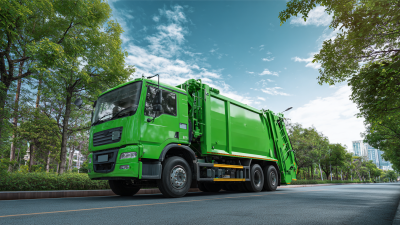
Unveiling the Technical Specifications of the Best Waste Pickup Solutions for Your Business
-

The Ultimate Handbook for Global Buyers: Mastering Trash Disposal Solutions
-
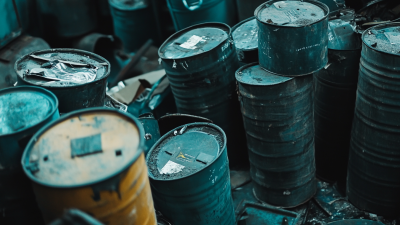
Unlocking Quality Suppliers: The Definitive Guide to Sourcing County Waste Solutions Globally
-

Maximizing Global Business Opportunities at the 137th Canton Fair with County Waste Solutions
-
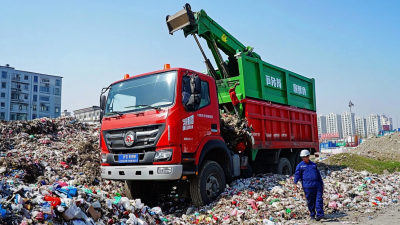
Top 10 Garbage Removal Manufacturers from China at the 137th Canton Fair
-
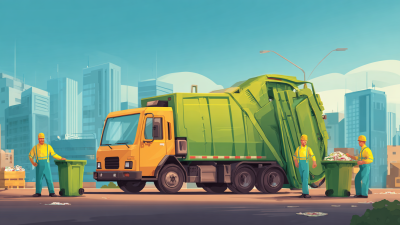
Leading the World in Waste Management Solutions: The Best Waste Pickup from Top Exporters
Request a Quote
Fill out the form below and one of our specialists will contact you to discuss your questions and needs.
